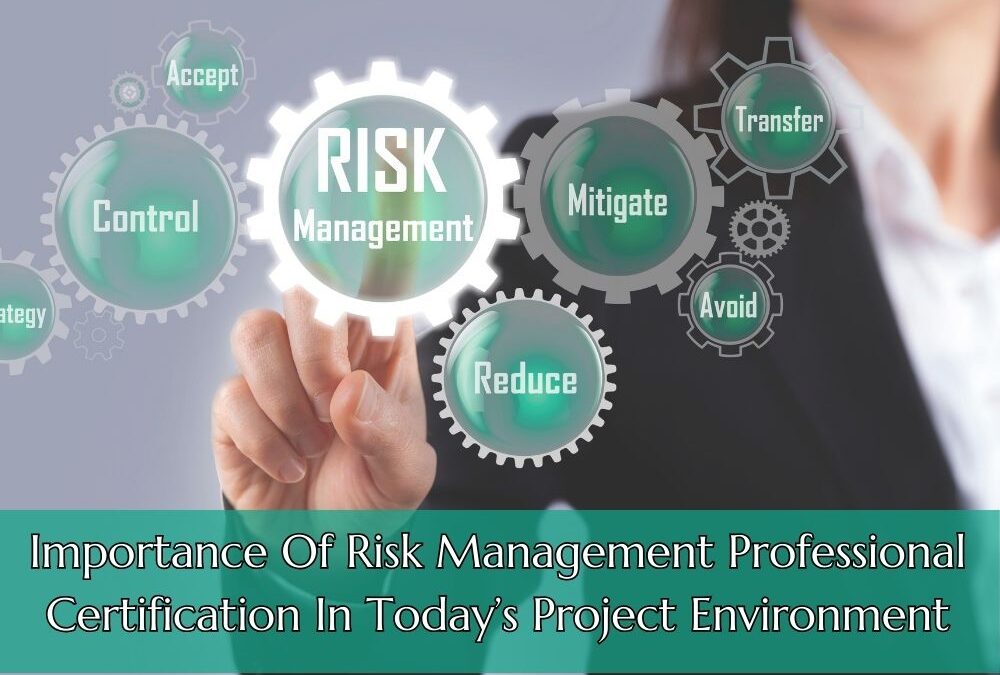In today’s dynamic business landscape, where uncertainty looms large and risks abound, the need for adept risk management professionals has never been more pressing. Projects, regardless of their scale or industry, are susceptible to an array of potential hazards that can impede progress, escalate costs, and compromise success. Herein lies the significance of acquiring a Risk Management Professional (RMP) certification—a credential that not only validates one’s expertise but also equips individuals with the indispensable skills to identify, assess, and mitigate risks effectively.
In conclusion, the imperative for risk management professionals has never been greater in today’s project environment. With projects becoming increasingly intricate and fraught with uncertainty, organizations rely on certified risk management professionals to navigate through turbulent waters and ensure project success. By obtaining RMP certification, individuals not only enhance their professional stature but also acquire the skills and knowledge necessary to mitigate risks effectively, drive value, and propel organizational growth. In a world where risks abound, the role of certified risk management professionals shines as a beacon of stability and assurance in the pursuit of project excellence.
Understanding Risk Management
Before delving into the importance of RMP certification, it’s crucial to grasp the essence of risk management itself. In essence, risk management entails the systematic process of identifying, analyzing, and responding to risks that threaten the achievement of project objectives. These risks could stem from various sources, including technological, financial, environmental, or human factors. A robust risk management framework empowers organizations to anticipate potential pitfalls, devise contingency plans, and ultimately, enhance project resilience.The Evolving Project Landscape
In recent years, the nature of projects has undergone a profound transformation. With the advent of disruptive technologies, globalization, and heightened stakeholder expectations, projects have become increasingly complex and interconnected. Consequently, the risks associated with project execution have grown manifold, encompassing not only traditional factors like cost and schedule overruns but also emerging threats such as cybersecurity breaches and regulatory non-compliance.The Role of Risk Management Professionals
Against this backdrop, the role of risk management professionals assumes paramount importance. These individuals serve as the vanguards of project success, leveraging their expertise to navigate through uncertainty and steer projects towards favorable outcomes. By employing a structured approach to risk assessment and mitigation, they help organizations preemptively identify potential roadblocks and institute proactive measures to address them.Benefits of RMP Certification
Now, let’s explore why obtaining a Risk Management Professional certification is indispensable in today’s project environment:1. Enhanced Credibility and Marketability:
RMP certification serves as a testament to an individual’s proficiency in risk management principles and practices. Possessing this credential not only enhances one’s professional credibility but also augments their marketability in an increasingly competitive job market. Employers value certified risk management professionals for their ability to add tangible value to projects and safeguard organizational interests.2. Comprehensive Skill Development:
The RMP certification process entails rigorous training and examination, encompassing a broad spectrum of risk management domains. From risk identification and assessment to mitigation strategies and stakeholder communication, candidates undergo comprehensive skill development that equips them to tackle diverse challenges encountered in project environments.3. Alignment with Best Practices:
RMP certification is aligned with internationally recognized standards and best practices in risk management, such as those outlined by the Project Management Institute (PMI). By adhering to established frameworks like the PMBOK (Project Management Body of Knowledge), certified professionals demonstrate their commitment to upholding industry standards and delivering excellence in risk management practices.4. Risk Reduction and Cost Savings:
Effective risk management, facilitated by certified professionals, leads to tangible benefits in terms of risk reduction and cost savings. By proactively identifying and mitigating risks, organizations can minimize the likelihood of project disruptions and avoid costly setbacks. This not only preserves financial resources but also enhances stakeholder confidence and trust.5. Strategic Decision-Making:
Certified risk management professionals possess the acumen to make informed, data-driven decisions in the face of uncertainty. By conducting thorough risk assessments and scenario analyses, they provide project stakeholders with actionable insights that enable strategic decision-making and risk-informed planning. This proactive approach fosters resilience and adaptability, essential qualities in today’s volatile business landscape.In conclusion, the imperative for risk management professionals has never been greater in today’s project environment. With projects becoming increasingly intricate and fraught with uncertainty, organizations rely on certified risk management professionals to navigate through turbulent waters and ensure project success. By obtaining RMP certification, individuals not only enhance their professional stature but also acquire the skills and knowledge necessary to mitigate risks effectively, drive value, and propel organizational growth. In a world where risks abound, the role of certified risk management professionals shines as a beacon of stability and assurance in the pursuit of project excellence.

